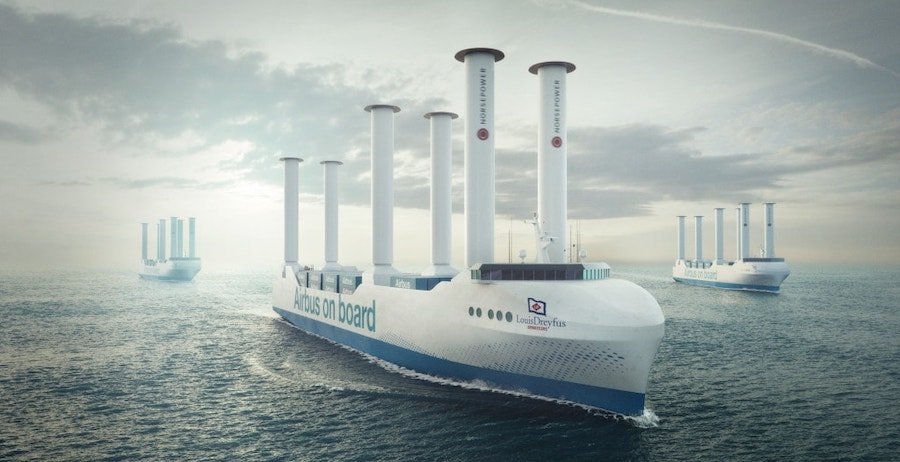Airbus Is Betting on Game-Changing Sail Tech for Shipping Its Aircraft Components

Airbus is one of the top names in aerospace when it comes to exploring and developing revolutionary solutions for zero-emissions, including hydrogen propulsion, SAF (sustainable aviation fuel), and eVTOL (electric vertical takeoff and landing) design. Reaching the net zero target also implies supporting sustainability for the giant company's overall operations, which include shipping aircraft and spacecraft components.
When it comes to shipping aircraft components, Airbus has a bold goal. By the end of this decade, the fleet that will be moving these components on the transatlantic route should generate half of the emission levels of 2023. This will be possible by combining advanced sail technology with hybrid propulsion. What makes it even more impressive is that this emission-lowering formula will be applied to an entire fleet, not just one vessel.
Each vessel in the fleet will feature dual-fuel engines compatible with e-methanol in addition to conventional fuel. On top of that, each one will boast six giant, 35-meter-tall (114.8 feet) rotor sails. And that's not all. These modern rotor sails will come with an innovative tool for individual control. The NPSCTM (Norsepower Sentient Control) technology uses real-time force measurement to control each rotor for maximum efficiency. Plus, it integrates an advanced reporting system for fuel savings.
Technology-wise, the new fleet will also feature state-of-the-art routing software for optimizing the transatlantic trip. The whole idea is to reduce fuel consumption through all of these combined efforts. Burning less fuel then translates to fewer emissions and lower costs.
The rotor sails and the accompanying NPSCTM tool (installed for the first time onboard this fleet) were developed by a Finnish expert in mechanical sail technology, Norsepower. The ships are operated by Louis Dreyfus Armateurs (LDA), a reputable French ship owner, which will charter this game-changing fleet to Airbus.
Airbus is no stranger to modern sailing solutions. Its maritime partner, Airseas, has developed one of the most unique and intriguing concepts for wind auxiliary propulsion – the Seawing. This is a kite-like sail system fitted with automated flight controls derived from aerospace technology.
Last year, another LDA ship that was meant to carry aircraft components from the A320 family was partially fueled with SAF in order to reduce emissions. It was a small-scale project, limited to a single ship and to a short route from one European production site to another.
This collaboration with Norsepower takes a big step forward and promises to cut emissions levels by 50% for the transatlantic shipping of Airbus aircraft parts.




Related News


